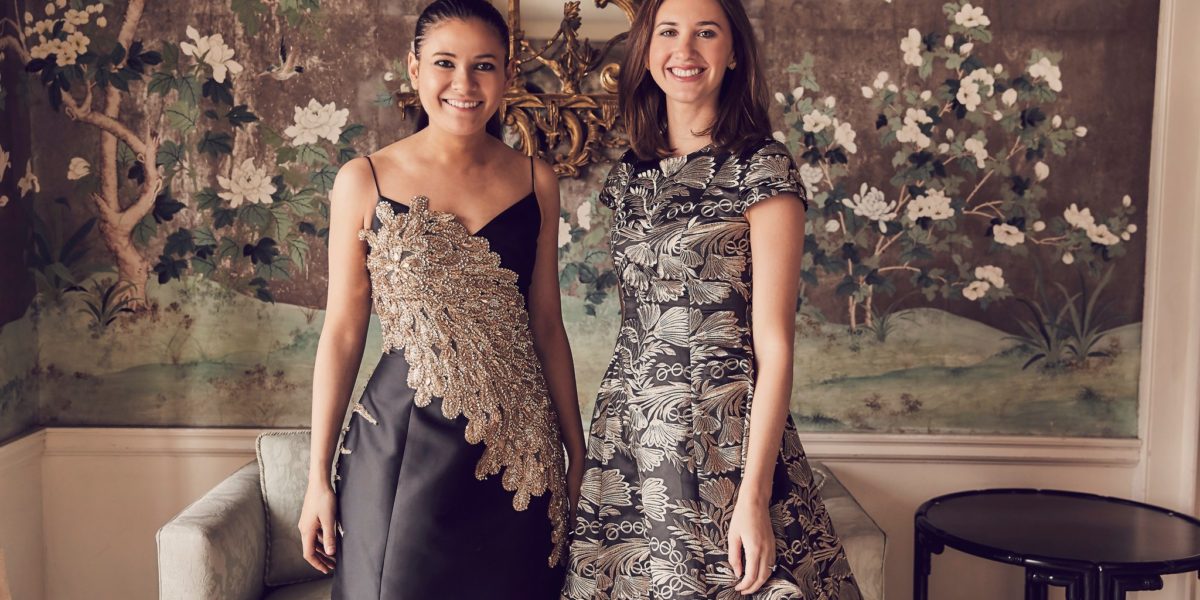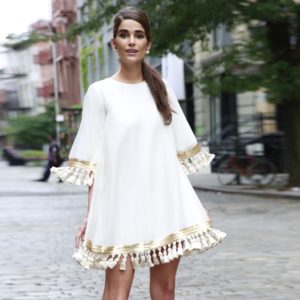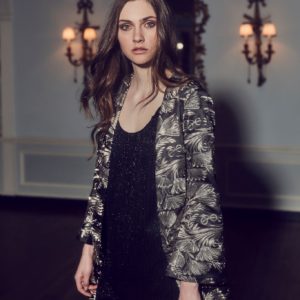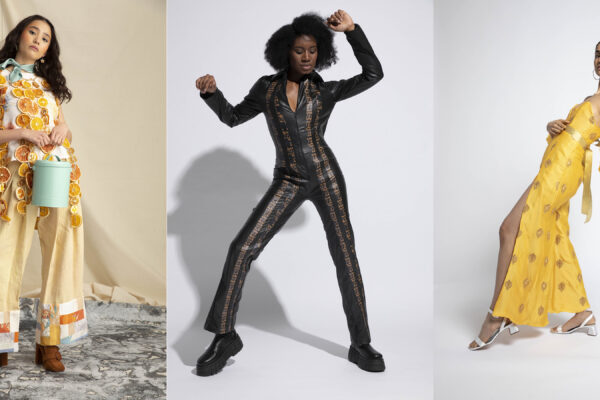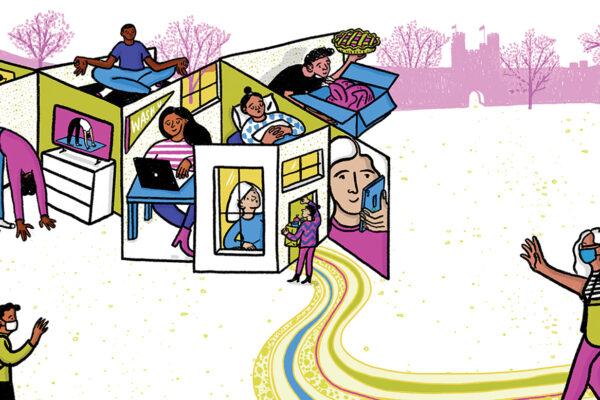In 2014, friends Louisa Rechter, AB ’09, and Alessandra Perez-Rubio, BFA ’09, were searching for affordable, black-tie, designer attire to wear to a friend’s wedding.
“All we could find were beautiful dresses for $5,000 or $10,000,” Perez-Rubio recalls. “But we couldn’t afford to spend that much. And that was when the lightning bolt struck for the two of us. Why doesn’t a beautiful cocktail brand exist at a price point that we can afford?”
Inspired, the two created their own line, Mestiza New York. After just two years, Mestiza is carried in two dozen specialty boutiques and by some of the country’s top retailers including BHLDN and Neiman Marcus. Mestiza has graced red carpets, been featured in magazines like Marie Claire, People Style Watch and Brides and even caught the attention of a production company, which wants to create an unscripted television series featuring Rechter and Perez-Rubio.
Back in 2005, Rechter and Perez-Rubio had no idea they’d go into business together when they met while rushing Pi Beta Phi at WashU. They connected over their shared heritage. Perez-Rubio had grown up in the Philippines and moved to California in middle school. Rechter’s mother had moved to St. Louis from the Philippines before Rechter was born.
“I didn’t know anyone from the Philippines,” Rechter says. “It was this mysterious, fairy-tale land for me. So when I met Alessandra, I was really excited.”
Though both loved fashion, neither studied it at the university. Rechter studied French with a minor in marketing, and Perez-Rubio studied communication design. After college, they both moved to New York.
Perez-Rubio did advertorial design work for Condé Nast, Time Inc. and Shopbop. “I was working tangentially in fashion,” Perez-Rubio says. “I always knew that there was a missing link, and I needed to be a fashion designer over a graphic designer.”
Rechter worked more directly in fashion, becoming the first and only buyer and planner for Milly, a contemporary women’s clothing retailer with two stores and an online shop, at age 23. The company was still small, so Rechter was involved in every aspect of the store.
“If they were short at the warehouse, I would go out and pack my own boxes. I would find jewelry to sell in store,” she says. “I just had my hand in everything.” She moved on to Coach, but “I always had this entrepreneurial spirit,” she says.
So in 2014, when inspiration struck, Rechter and Perez-Rubio were both all in. Perez-Rubio designs the line and draws on her Filipino heritage to create the clothes. Even the name of the company, Mestiza, means a woman with Filipino and foreign ancestry.
“I was very much inspired by vintage photographs of our mothers and grandmothers in the 1960s in the Philippines,” Perez-Rubio says. “I drew on a lot of the silhouettes that are very Spanish Colonial that women wear to formal events in the Philippines.”
Mestiza New York also gets traditionally woven textiles from the Philippines, thanks to a partnership with the Habi Philippine Textile Council, which employs female artisans.
In 2015, shortly after quitting their jobs, they launched their line, cold calling more than 300 boutiques.
“No one would accept our call. It was a wild goose chase,” Rechter says. So the two decided to create their own following and did a series of trunk shows. The first was primarily for WashU friends.
“I think that was our most successful one,” Perez-Rubio says. “There’s something about other WashU girls coming that meant something.” The pair sold more than 100 units in two weeks.
Perez-Rubio and Rechter then entered a fashion incubator program at the Fashion Institute of Technology, where they learned about developing a business. When the two went to market with their spring/summer 2016 capsule collection, they landed one of the best high-end retailers in the country, BHLDN.
They credit WashU for laying the foundation for their current business. “WashU taught me to ask the right questions and work smart,” Rechter says.
“And ultimately, the best part — I know this is cheesy — but it’s the fact that we met each other,” Perez-Rubio says. “A lot of the people we knew at WashU are still a part of our lives, and that’s absolutely invaluable.”
